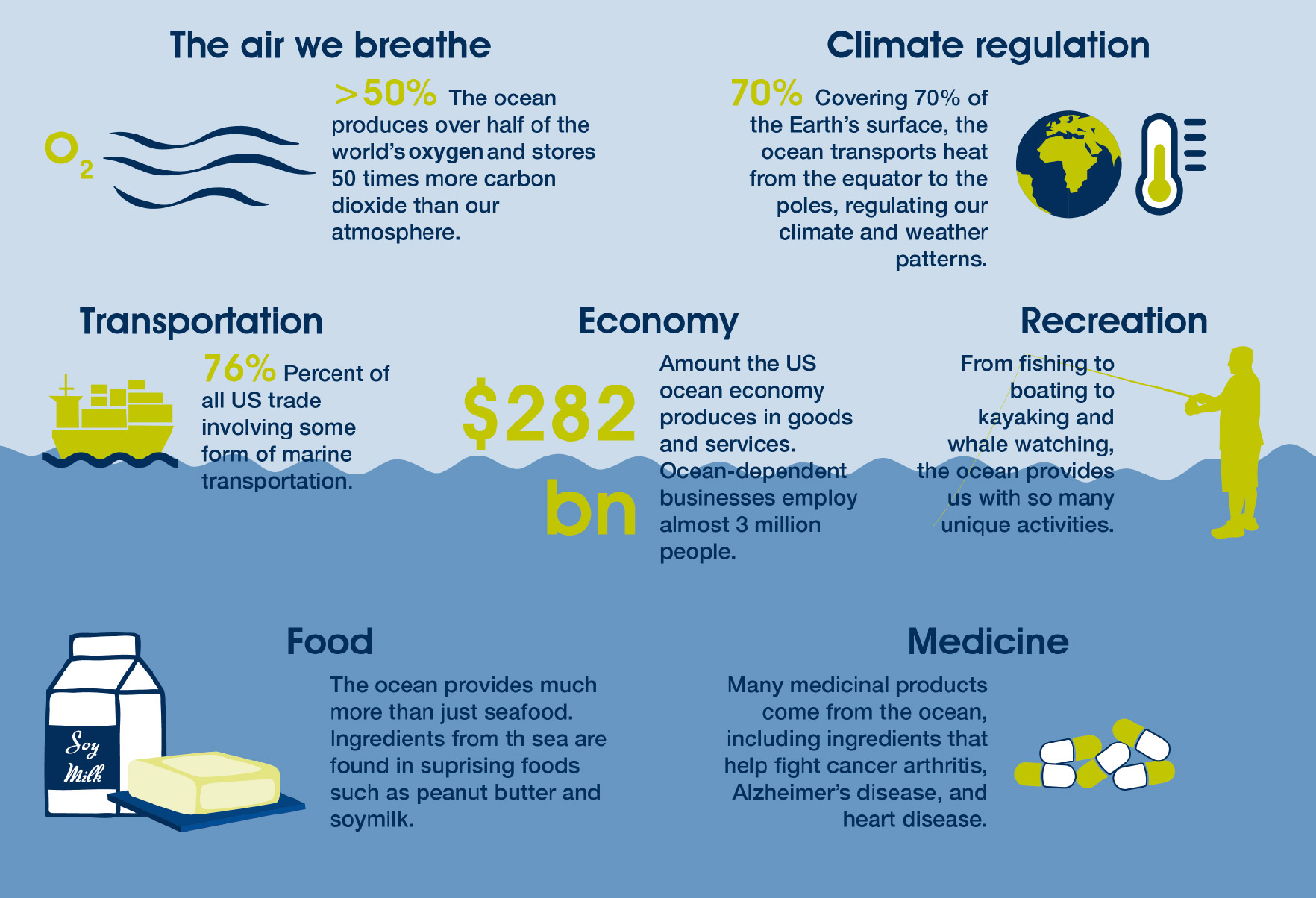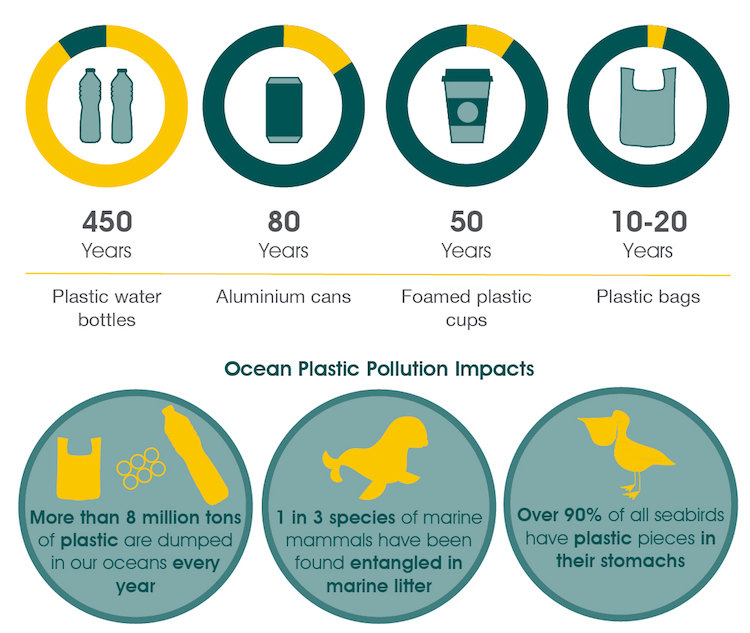Over the last 70 years, the proliferation of plastic products has exceeded every forecast ever made, making it practically impossible for humans to live without the material. Currently, we are producing nearly 300 million tons of plastic every year and approximately 50% is used just once before being thrown away. To put these figures into context, the plastic produced since 1950 is equivalent to the weight of 1 billion elephants. The industrialization of modern day society means there is now no human activity or industry where plastics have not played a key role, ranging from clothing and packaging to communication and healthcare.
Today, more than 8 million tons of plastics are dumped into our oceans annually. This is overwhelming, and the environmental impacts of these amounts of plastic waste in our oceans are immeasurable and far-reaching, ranging from floating wastes to damaging underwater ecosystems and the creation of ocean dead zones. Even below the ocean’s abyssal zone in areas of the ocean that go as deep as 10km underwater, animals and wildlife have been found to be polluted with chemicals as a result of growing pollution levels.
.
Estimated Decomposition Rates – Years to Biodegrade
Source: Raconteur (2016)
.
We cannot allow our biggest resource, the ocean, to become a dumping ground for plastics and other waste. Pollution is affecting society through its economic effects, including productivity losses, healthcare costs, and damage to ecosystems necessary for livelihoods. A recent report by the medical journal, The Lancet, showed that welfare costs associated with pollution, including medical costs, amount to nearly $5 trillion a year, more than 6% of annual global economic output.
If we continue endangering the oceans and the natural benefits they provide, we are risking the continuity of life as we know it. Ocean pollution decreases the quality of the air we breathe by reducing the oxygen available in the atmosphere, alters climate regulation due to heat transportation, disrupts the marine shipping of goods and services and reduces consumer access to seafood and natural medicines derived from this natural resource.
.
Our World Ocean Provides
 Source: National Ocean Service (2017)
Source: National Ocean Service (2017)
.
The situation we are facing with plastic pollution is becoming more and more unsustainable. Plastic has played a crucial part in the development of human society; however, it now represents a large-scale threat that does not recognize international borders and affects all of us equally. With annual production set to soar to more than one billion tons by 2050, manufacturers, retailers and consumers must take responsibility to reuse, recycle and close the loop on plastic waste.
To fight this increasing pollution threat, the UN Environment Assembly (UNEA-3) gathered in Kenya from 4-6 December 2017 to discuss commitments and actions. The Assembly was constituted by all 193 UN Member states and included the full involvement of UN organizations, specialized agencies, inter-governmental organizations, civil society and the private sector.
Within the efforts to protect our environment, the Assembly developed the initiative of zero tolerance of plastic pollution, with governments moving towards a legal treaty banning plastic waste from entering the sea. At present, ships are not allowed to dump plastic overboard but there is no international law against plastic flooding into the sea from land. Delegates in Kenya have been working to explore options for global action to tackle plastic waste and microplastics in order to combat the plastic crisis we are living in.
The Assembly agreed on a new UN resolution to halt the tide of ocean plastic and stop the planetary crisis that is poisoning our global waters. The agreement acknowledges the urgent need to stop ocean plastic pollution and sets out concrete plans for an international taskforce to advise countries and businesses on how to tackle the problem. The goal is to transform habits, practices, standards and policies around the globe to dramatically reduce marine litter and the harm it causes. Despite this new resolution, some governments are reluctant to mirror the proposed model of similar structure to the Paris Agreement. While the UN resolution is not legally binding and does not set time-bound targets, especially after the US refused to agree to specific international goals in accordance with its own environmental agenda, the consensus of the world is clear with this step forward to combat ocean pollution.
The international community is optimistic. This new UN resolution will set the course for tougher policies and send a clear signal to the business world. The UN has accomplished their goal of raising awareness about the health of global oceans and laid the groundwork for the global community to start reversing the damage caused to our environment.
Our agricultural plantations in North East Brazil are located a mile away from the Atlantic Ocean and this proximity is one of the reasons we have committed to the creation and development of recycling policies to avoid ocean plastic pollution. Primal Group actively supports a pollution-free planet through its recycling initiatives and efforts developed across our plantations. We work with ECO+, a local company specialized in collection and recycling of wastes. This company has been working to collect, transport and recycle our disposals in a sustainable way, with the goal not only to preserve the local environment and ensure a clean area for the right development of our trees and local community, but also to ensure that our waste does not become pollution.
Furthermore, we are committed to utilizing and adopting the most sustainable packaging options for our products, not only offering solutions to the growing plastic problem but being actively involved in the removal of such plastics from the seas. As the wider international community starts to work towards a zero tolerance on ocean pollution, governments and the private sector will need to support innovative waste management measures to avoid environmental pollution and protect our oceans.
